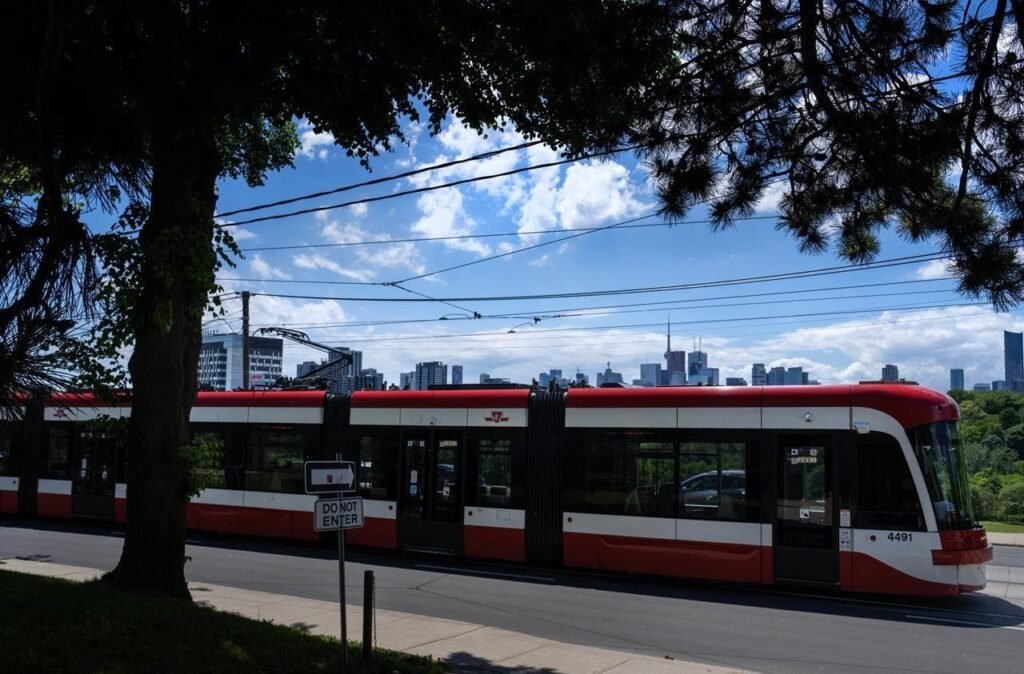In a significant development for Toronto’s public transit system, Union President Marvin Alfred announced a breakthrough settlement with the Toronto Transit Commission (TTC), addressing critical workforce concerns such as job security, wages, and working conditions for ATU Local 113 members. This agreement, achieved through rigorous negotiations, not only guarantees a fair outcome for workers but also secures the operational continuity of the TTC, avoiding potential service disruptions. As the details of this landmark settlement unfold, one might wonder how this will shape the future of labor relations and the overall quality of transit services in the city.
Key Takeaways
- Marvin Alfred, ATU Local 113 President, announced a significant settlement with the TTC addressing workforce concerns.
- The agreement enhances job security, wages, and working conditions for TTC employees.
- Settlement ensures no service disruptions, improving commuter experience and operational efficiency.
- Detailed negotiations focused on fair outcomes, avoiding a strike and favoring constructive labor relations.
- The settlement sets a precedent for future labor relations in the transit sector, promoting stability and employee satisfaction.
Marvin Alfred’s Statement
Marvin Alfred, president of ATU Local 113, confidently addressed reporters, providing an in-depth analysis of the newly announced framework settlement with the TTC.
Emphasizing the union’s position, Alfred articulated that the agreement reflects significant progress in addressing the workforce’s concerns. The settlement details reveal provisions aimed at improving job security, wages, and working conditions, effectively postponing a planned strike.
Alfred highlighted that the union’s stance throughout the negotiations was to achieve a fair and equitable outcome for its members, who comprise approximately three-quarters of TTC workers. The agreement underscores a balanced compromise, ensuring both the TTC’s operational continuity and the workforce’s welfare, thereby marking a pivotal moment in labor relations within Toronto’s transit sector.
Impact on TTC Operations

The framework settlement between ATU Local 113 and the TTC is poised to greatly influence TTC operations by potentially enhancing work conditions and averting service disruptions. Key changes proposed in the agreement aim to improve employee satisfaction and morale, thereby fostering a more stable workforce.
These changes are expected to translate into efficiency improvements, as better working conditions can lead to increased productivity and reduced absenteeism. Additionally, by circumventing the planned strike, the settlement guarantees continuous service, minimizing inconvenience to commuters.
This uninterrupted service is critical for maintaining public trust and reliability in the TTC. Overall, the agreement holds promise for enhanced operational efficiency and service quality, benefitting both employees and Toronto’s transit users.
Negotiation Process Overview
Engaging in a series of detailed discussions, ATU Local 113 and the TTC successfully navigated a complex negotiation process that culminated in a framework settlement.
The negotiation progress was marked by rigorous deliberations on several key issues addressed, such as wage adjustments, job security, and working conditions.
Both parties demonstrated a commitment to resolving their differences, which facilitated constructive dialogue and mutual concessions.
The resolution of these pivotal matters not only averted a potential strike but also set a foundation for improved labor relations.
Public Transit Users’ Perspective
Public transit users in Toronto stand to benefit greatly from the recent settlement between ATU Local 113 and the TTC, as it prevents immediate service disruptions and promises potential improvements in service quality. Passenger satisfaction is likely to see a positive shift, given the stability and enhancements expected from the agreement. Commuters can anticipate smoother operations and increased reliability, addressing common concerns about service disruptions and delays.
| Aspect | Expected Outcome |
|---|---|
| Service Disruptions | Prevented |
| Service Quality | Potentially Improved |
| Passenger Satisfaction | Likely to Increase |
The settlement represents a significant step in maintaining the continuity of public transit services, which is essential for the daily routines of thousands of Torontonians.
Future of Labor Relations
Given the successful resolution of the recent negotiations, this settlement sets a pivotal precedent for future labor relations within the transit sector.
This framework agreement between ATU Local 113 and the TTC may shift the labor dynamics, offering a model for resolving disputes efficiently.
As labor unions across various sectors observe this outcome, it could influence their strategies in upcoming negotiations.
The settlement showcases the potential for constructive dialogue and mutual concessions, thereby enhancing the prospects for stable, long-term labor relations.
This development not only mitigates immediate operational disruptions but also paves the way for more predictable and cooperative interactions between transit authorities and their workforce in the future, ultimately benefiting service quality and employee morale.